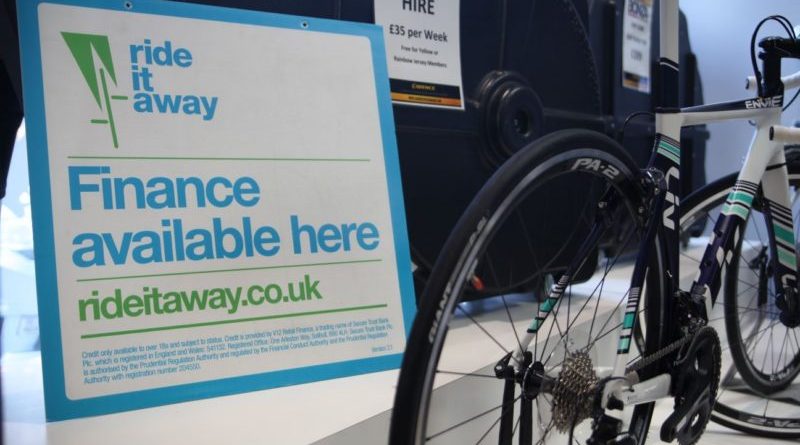FCA authorised retail finance providers stung with 135% fee hike
The Financial Conduct Authority has recently announced significant increases in its base rate fees, affecting retail finance, leading the Association of Cycle Traders to warn of ” an unfavourable effect, particularly on smaller independent retailers.”
The FCA, who regulate the UK retail finance, recently released its 2021/22 business plan, which includes substantial increases to the costs paid by authorised retailers. The impact of these increases are now starting to be seen by retailers as the latest invoices are being sent out.
Any business authorised by the FCA to introduce customers to regulated finance, known as limited permission secondary credit brokering, will be affected.
Until now limited permission firms in the lowest fee bracket paid a base rate of £106 annually. However, the FCA have decided that small firms, who currently pay a minimum fee, should now pay an increased amount to “make a contribution to the costs of regulating them that more fully reflects the costs associated with FCA authorisation and ongoing supervision.” (FCA regulated fees and levies: rates proposals 2021/22, p.4 pt.1.8).
The new consumer credit base rate for smaller firms is £250 per year, a 135% increase of £144. According to the FCA, these revised fees for 2021/22 are “the first stage to bring greater alignment of these minimum fees with other authorised firms who currently pay a minimum fee of £1,151”. This, says the ACT, would suggest more increases are to follow until limited permission fees match other authorisations.
This increase in base rate fees will likely have more of an impact on smaller businesses as they are less able to absorb the increase. This increase in cost is likely to cause many smaller businesses to cancel their authorisation and thus will be offering consumers less choice, not more, adds the cycle trade organisation.
Unintended consequences
Another consequence of the FCA fee structure increase makes becoming an Appointed Representative (AR) business more attractive. ARs are not directly authorised by the FCA so don’t pay fees directly to the FCA. Instead, they have an agreement with another business, the Principle, who is authorised by the FCA to use their permission. The Appointed Representative service was recently launched by the ACT whereby the ACT acted as the Principle and retailers authorised could avoid paying additional FCA fees.
However, as part of the 2021/22 review the FCA identified “failings included insufficient oversight of their ARs and inadequate controls over the regulated activities for which they have accepted responsibility”.
Rather than taking direct action against only those Principle firms that hadn’t been regulating their ARs sufficiently, the FCA have decided to charge every Principle £250 for each AR they have.
The new £250 fee, charged per AR, will make it less feasible for Principle businesses to appoint smaller independent firms. The increased fees and oversight requirements have meant that unfortunately the ACTs own AR scheme has been terminated.
Chris Hall, ACT Director said: “the ACT undertook significant amounts of work, resource and time to create the AR service for our members, that we considered a ground-breaking service to enhance our cycle finance product – Ride it away – which reached sales of £140M over the last 12 months.
“We are disappointed with the FCA’s decision to penalise all Principles rather than just those who failed to provide proper oversight and would like to ensure our members are aware this is an external factor that we have no control over.
“With this is mind, I would still like to reiterate the importance of retail finance as a sales tool to cycle shops and firmly believe that is a profitable asset to businesses when used effectively.”
Applications made via the ACT’s Ride it away scheme, even with current stock issues, are now back to pre-covid levels and we are experiencing the similar growth patterns as seen prior to the pandemic.
All trends are proving that when customers want to purchase a higher ticket item that retail finance is an attractive payment method; in April and May 2020 80,000 people applied for retail finance on the Ride it away scheme alone.
Retail Finance remains on a roll
Despite the increased FCA costs retail finance remains a powerful sales tools for retailers. In June 2021, returning customers using the ACT’s Ride it away scheme accounted for 13%, meaning that 87% were new customers using finance as an alternative payment method.
Furthermore, since January 2019, the yearly average loan amount has risen by 54%. Based on this and the evident non-availability of lower ticket bicycles, it’s obvious customers want alternative methods to pay for higher value purchases.
The ACT’s retail finance scheme are currently influencing hundreds of thousands of pounds worth of UK bicycle purchases every day.
Indie Retail Training, is an online learning course designed for all owners and employees in a business that either currently, or plans to, offer retail finance as a payment method.
The course will teach you how to legally promote and use retail finance in-store, online and in all other forms of media. As well as covering the legal details this course also aims to make sure you maximise each sale using retail finance.
The cost to access the course is £150 including VAT. ACT members receive preferential pricing with up to 50% off.



